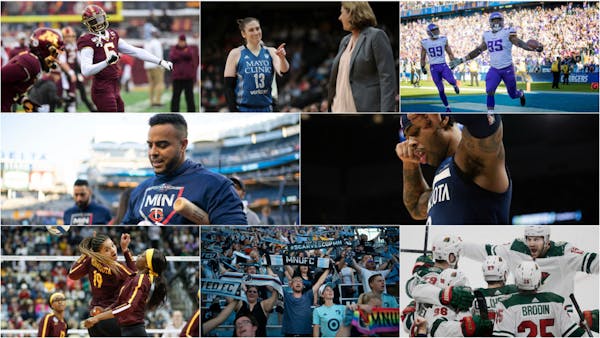 See
more of the story
See
more of the story
Baseball's devolution from National Pastime to quaint regional sport was sped by work stoppages and scandals, but the game might never have faced existential threats like the ones that have arisen in the past six months.
The past three World Series featured a team later accused of using technological espionage. The Houston Astros and Boston Red Sox appear to have stolen championships.
Major League Baseball, already losing quality athletes to other sports, decided to shred its vast minor league system, potentially robbing itself of proximity to fans who don't live in big-league cities, and of developmental opportunities for young players.
Because of the pandemic, baseball likely will not play minor league games this year, will limit its draft to five rounds this summer, and will limit signing bonuses, again risking pushing young players toward other sports or professions.
And now, as hockey, basketball and football plan to return in the coming months, baseball has positioned itself to become the one major sport that can't get its act together.
The owners and players initially agreed to a deal in March that would pay players a prorated portion of their salary based upon games played. The owners' latest proposal asks for further pay cuts, and attempts to cut large salaries at a higher percentage than lesser salaries — an obvious attempt to sow discord in the ranks of the Major League Baseball Players Association.
Unfortunately for the owners, the MLBPA might be the best organized union in America.
The players won't cave in, and will likely respond with a plan that ignores the owners' proposal.
On the cusp of June, no meaningful negotiations have taken place, endangering MLB's plan to begin its regular season in early July.
If your interest in baseball was limited to choosing the greater villain in negotiations, you would probably side with the players, who are merely asking that the contracts they signed be honored, and that their health be protected.
But it's unlikely that many Americans will look kindly upon either side during a pandemic, when baseball's return could provide a sense of normalcy and hundreds of hours of entertainment.
If the owners and players can't reach an agreement, baseball may be in a unique kind of trouble. MLB will have cleared the way for the NHL and NBA to dominate the summer, and for the NFL to play without any competition from baseball's postseason this fall.
For the Twins, excitement over a 101-victory season will dissipate. Nelson Cruz will move one year closer to retirement, and Josh Donaldson will move further from his prime.
It is often said that baseball is such a great game that even the people who run it can't screw it up. But is that true? Or did each work stoppage and scandal chip away at the game's popularity, helping the NFL become America's dominant sport by a wide margin?
Baseball bears the burden of symbolism. Anachronistically or not, baseball is tied to our nation's sense of well-being. A baseball season is a sign of a functioning society. So what would a season erased by greed become?
Baseball requires more of fans than any other sport. Closely following your local team can require 20 hours a week. During the pandemic, many American sports fans have learned to pass time without baseball. If the sport disappears for a year because of negotiating rancor, how many fans will never come back?
America is in no mood to watch millionaires fight with billionaires. Taking fans for granted this summer could damage the summer game forever.
Jim Souhan's podcast can be heard at TalkNorth.com. On Twitter: @SouhanStrib. • jsouhan@startribune.com







